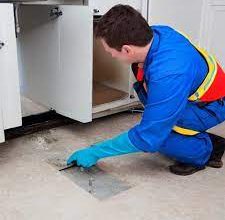
11 Essential Tools Every Homeowner Needs For Repairs
Having the right tools can make a huge difference when it comes to DIY home repairs. Most common repairs are simple enough to be done with a basic tool kit. The harder home repairs should be covered under a home warranty. You need to have invested in a good plan to cover the costs of any repairs that arise in your home. Home warranty solutions solve the problem of high costly repairs.
Start with a good quality tape measure – the kind that has a metal retractable body and shows fractions of an inch. Also, consider a flashlight for those projects that will take place after dark or in tight working corners.
- Tape Measure
When it comes to home repairs, a tape measure is a staple tool that every homeowner should own. It helps ensure accurate measurements for a variety of tasks, such as hanging art on the wall or determining the size of a room.
Tape measures typically come in lengths ranging from 12 to 100 feet and offer both imperial measurement markings (like inches and feet) as well as metric measurements.
- Hammer
From hanging picture frames to breaking down walls, a hammer is one of the most versatile tools in any homeowner’s toolbox. Choosing the right hammer for the job helps prevent damage and improves efficiency.
There are many different types of hammers, each designed for a specific task. For example, a pry bar is better at pulling apart materials than a standard claw hammer.
- Wrench
A wrench is a common tool that every homeowner should have in their toolbox. A wrench can tighten or loosen bolts and nuts. It’s important to use the right size of wrench to minimize risk of injury or damage.
A wrench has a ratchet handle and socket extension for grabbing hard-to-reach fasteners. They are available in standard and metric sizes to fit many different bolt sizes.
- Pliers
Pliers are a tool that is essential for almost all home improvement projects. They come in a variety of sizes, shapes, and designs to help with electrical, automotive, and general household repairs.
For example, a pair of needle-nose pliers can be used to grasp small parts or wires in tight spaces. Other pliers, like crimping pliers, serve a specific task by pressing and squeezing terminals onto wire ends.
- Utility Knife
A utility knife has a multitude of household applications like cutting cardboard boxes, removing dried caulk or slicing oranges. Look for one with a metal body to hold up against drywall dust, carpet fibers and shingle debris. Choose a model with tool-free blade changes and spare blade storage.
A utility knife is great for minimizing material waste, which directly benefits construction projects. Keep it lubricated to ensure smooth blade movements and to prevent rust.
- Screwdrivers
Screwdrivers are one of the most important hand tools for home repair and assembly jobs. A basic set includes a Phillips, flathead and hex screwdriver for most projects.
A hex screwdriver is useful for tightening and loosening hex-head screws in doorknobs and other household fixtures. It also fits the hexagonal recesses in hex head nuts and bolts. A popular choice for builders and serious DIYers.
- Nails & Screws
Having the right tools makes it easier to complete projects and repairs. A well rounded collection of tools can help you measure, cut, hammer, drill, nail, tighten and loosen, and hold.
But knowing when to reach for nails or screws isn’t always clear-cut. It depends on a number of factors like project size and fastener type. Nails are better for some things, screws for others.
- Level
A level helps ensure pictures hang straight and shelves stay in place. Having one on hand can save you from calling a contractor or paying an hourly rate.
Duct tape is a handy jack of all trades that can patch a leaky gutter, tie up an extension cord, or get dog hair off a couch. It comes in all sorts of colors, too.
- Flashlight
Whether you need to inspect a leaky pipe or navigate a dark basement, flashlights are indispensable tools for DIYers. Opt for a multi-tool model with a mini knife, pliers and screwdriver attachments.
Most home repairs should be left to professionals, but a few basic tools can help any homeowner get the job done. Choose from a wide range of projects, maintenance guides and tool 101s.
- Clamps
Clamps are essential for certain home-repair projects, such as holding materials
together while glue dries. For example, spring clamps resemble large metal clothespins and come in a variety of sizes. Also look for F clamps, which have adjustable jaws that can fit different pipe sizes.
A plumbers’ snake is a useful tool for plumbing repairs, and a closet auger helps clear clogged toilets. You’ll also want a set of allen wrenches, which perform like screwdrivers but go into a fastener head instead of around it.



